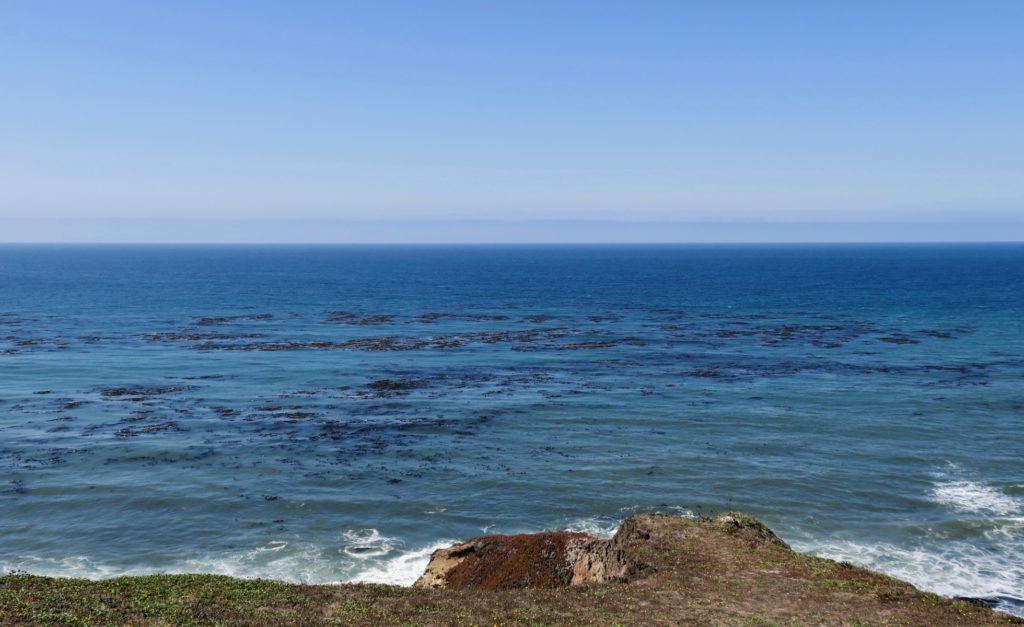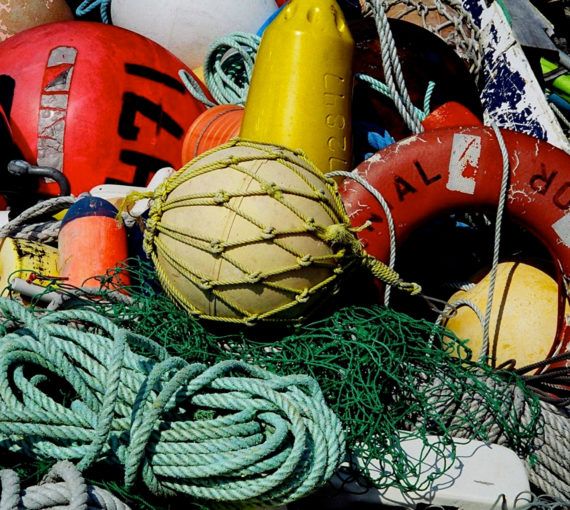
The UN COP25 climate conference in Madrid is a prime opportunity to declare ocean protection a vital component of our global climate emergency action plan. (Photo: Jinx McCombs via Flickr)
The ocean has nourished and protected a great abundance of life on Earth for billions of years. If we aim to save ourselves from a complete climate breakdown, it’s time to start returning the favour. The UN COP25 climate conference in Madrid is a prime opportunity to declare ocean protection a vital component of our global climate emergency action plan.
The ocean plays a key role in storing heat, and so influences global climate. In 64 years, it has absorbed more than 90 per cent of the excess heat trapped by greenhouse gases. Humankind had long recognized the ocean for its wealth of resources, but climate services such as reducing heat and producing oxygen are often out of sight, out of mind. The first Intergovernmental Panel on Climate ChangeSpecial Report on the Ocean and Cryosphere in a Changing Climate, released in September, makes clear that these invisible ocean services are vital to the planet’s health, and our own survival.
Maintaining ocean resilience and health is a climate action. On average, the ocean’s uptake of human-caused emissions is enormous — approximately 2.6 billion tons of carbon annually. If the ocean didn’t act as a climate shield over the past decades, Earth’s atmosphere could have warmed by 36 C. Scientists conclude it is unlikely that the oceans will be able to keep up this pace year in and year out.
From the surface, the ocean may look like a lifeless mass of water, but curious divers and scientists know the cold waves conceal a world full of life.
In addition to carbon sequestration, ocean ecosystems feed 3.1 billion people. From the surface, the ocean may look like a lifeless mass of water, but curious divers and scientists know the cold waves conceal a world full of life. Colourful anemones and algae adorn the rocks below abundant kelp forests. Splashes of yellow and pink corals paint the gloomy rocks. Immense schools of fish of all kinds inhabit all reaches of this ocean, which covers 71 per cent of Earth’s surface. These majestic underwater ecosystems are deteriorating. Countries that don’t act decisively at COP25 to protect both climate and ocean will deprive younger generations of their right to a future in more ways than one.
The ocean has already taken a beating and is suffering from declining health on many fronts. Diminishing marine life, sea level rise andshrinking ice caps are just some of its symptoms. A key impact of today’s climate breakdown is acidification. Science shows that it is increasing the potential for an ecological collapse in many areas of the global ocean. Increasing deoxygenation is responsible for a shocking increase in size and number of ocean dead zones, where little can survive. The combination of heating, acidification and deoxygenation has been present in every mass extinction in Earth’s history. The severity of climate change impacts means controlling other stressors is critical.
Overfishing, pollution and destruction of habitats, ecosystems and biodiversity are just some of the stressors that can be stopped to improve resilience of the ocean to withstand further climate breakdown.
To help maintain ocean health and ecological services in the face of the climate crisis, countries must limit all extraneous stressors on the ocean that are within their control. Overfishing, pollution and destruction of habitats, ecosystems and biodiversity are just some of the stressors that can be stopped to improve resilience of the ocean to withstand further climate breakdown.
Achieving the 1.5 C target agreed to at the 2015 Paris climate conference is urgent and vital, but ocean services could still be at risk even with immediate action to curb temperature rise and cut CO2 emissions. Because greenhouse gases remain in the atmosphere for many years, trends that are already occurring — such as heating — will likely continue, affecting the ocean for hundreds of years. If we fail to implement measures on both fronts, the consequences will be far worse.
Although Madrid is far from the coast, all parties to the United Nations Framework Convention on Climate Change have to float tandem actions for ocean and climate health. Ambitious “nationally determined contributions” that include actions to remove threats to the ocean must be at the heart of COP25. While this conference traditionally focuses on reducing emissions, countries must not lose sight of the need to maintain healthy ecosystems and carbon-sequestering resources.
Many cities and countries officially recognize the climate emergency. Now it’s time to act.
Canadians want tangible change that tackles key stressors and climate breakdown. There is an appetite for bold climate action at all levels, from communities to the courts and city halls. A recent survey shows that 93 per cent of Canadians support further ocean protection, and hundreds of thousands are taking to the streets to call for effective climate action. Many cities and countries officially recognize the climate emergency. Now it’s time to act. COP25 is one of our best chances to ensure that the ocean remains healthy enough to withstand and help mitigate the effects of climate breakdown.
This op-ed was originally published in The Hill Times.
Our Work
Always grounded in sound evidence, the David Suzuki Foundation empowers people to take action in their communities on the environmental challenges we collectively face.




